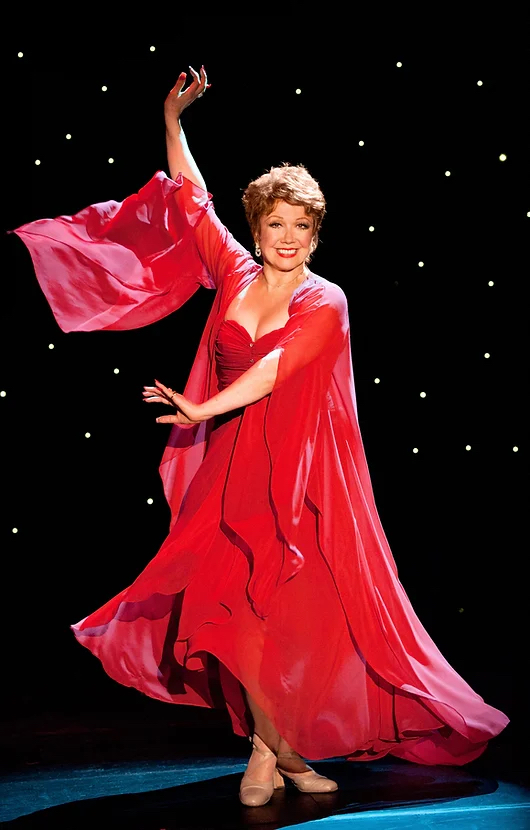
Fifty years ago, Donna McKechnie choreographed and performed in the first-ever concert tribute to Stephen Sondheim. The starry one-night fundraiser for the American Musical and Dramatic Academy was held at Broadway’s Shubert Theatre and captured for posterity on a celebrated Masterworks recording.
This weekend, McKechnie—best known for originating, and winning a Tony for, the role of Cassie in “A Chorus Line”— will posthumously honor her late colleague in two performances of her solo show “Take Me To The World, the Songs of Stephen Sondheim” at Feinstein’s at the Nikko.
“I was so thrilled” to be involved in that 1973 concert, recalled McKechnie in a recent interview , “Stephen was very involved in the production. The indelible picture that stays in my mind is of our dress rehearsal, when all these great people—Angela Lansbury, Chita Rivera, Nancy Walker, Jack Cassidy, Alexis Smith—all in their glittery finest. just surrounded Stephen at the piano and sang together.”
At the time, both McKechnie and and Sondheim were still on the rise, their respective paths toward icon-status frequently crossing. McKechnie’s first major national theater job was in the 1961 touring company of “West Side Story,” a show which three years prior had marked Sondheim’s Broadway debut as a lyricist.
McKechnie also toured in “A Funny Thing Happened on the Way to the Forum,” which, in 1962, was Sondheim’s first big success writing both words and music.
By the late 1960s, both Sondheim and McKechnie had chalked up further Broadway successes; his including the lyrics for smash hit “Gypsy” and the score and lyrics for “Anyone Can Whistle,”; hers highlighted by a star-making turn in Burt Bacharach’s “Promises, Promises”: McKechnie’s “Turkey Lurkey Time” dance—choreographed by future husband Michael Bennett—brought her major recognition.
In 1970, McKechnie began her most intensive collaboration with Sondheim when she was cast as Kathy in the Broadway-bound “Company,” arguably the first of the unorthodox, deeply psychological, character-driven works that are today considered most characteristic of Sondheim.
“After the cast was set,” McKechnie recalls, “we were all invited to director Hal Prince’s house to hear the score. I can see it clearly in my mind. We’re all spread out. Hal and Steve are by the piano. Steve proceeded to describe each song before he sang it, explaining what he wanted it to convey. It was an electric experience to be there, hearing this music for the first time. I thought my head was going to come off.”
McKechnie, again working with Michael Bennett, riveted audiences with “Tick Tock,” her second act dance solo, physically expressing a single woman’s passion, anger and frustration about the contemporary dating scene and the pain of serial rejection.
In that first production, “Company” was only a modest success on Broadway, but it transferred—along with McKechnie—to London, where it was greeted with critical and audience acclaim.
Over the years, McKechnie had the opportunity to play- and sing -a number of other Sondheim roles, including Desirée in “A Little Night Music” and both of the female leads—Phyllis and Sally—in two different productions of “Follies.” (“Send In The Clowns” and “Losing My Mind” from those shows will likely be in her set list at Feinstein’s).
While theater afficionados may most immediately associate McKechnie with her 1975 triumph in “A Chorus Line” (directed and choreographed by Bennett) rather than any of Sondheim’s shows, its arguable that ticket-buyers may never have been ready for the angst-ridden, existentially probing aspects of “A Chorus Line” without the precedents set by Sondheim.
McKechnie speaks for generations of audiences as well as artists when she says, “He was such a great teacher.”
